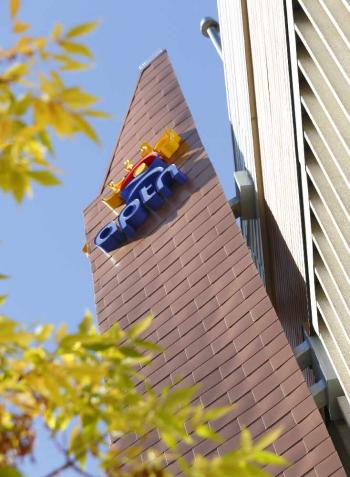By Andrea Smith
Windspeaker.com Contributor
The Indigenous broadcaster APTN is up for its license renewal and is seeking public support to secure another five years of operation. The Aboriginal Peoples Television Network has proposed two specific changes to its programming in its renewal application.
“In our view, they are minimal… The first one is we have a very high Canadian content requirement of 75 per cent. I think it’s the highest in the industry… We’ve asked for it to be brought down to 70 per cent,” said Jean La Rose, APTN CEO.
“It’s not in order to bring in American programming… What we’ve noticed is a growth in Indigenous productions from around the world. So this is to give ourselves a bit of wiggle room, and allow an exchange of content,” he said.
This modification, according to La Rose, will really have an impact in helping Aboriginal people in Canada connect with their “brothers and sisters around the world,” being able to view programs from many other Indigenous groups and nations.
The second proposed modification is to lower the amount of programming APTN runs that isn’t produced directly by APTN. The current allotment is 80 per cent independent (not made by APTN). APTN wants that knocked down to 70 per cent.
“What we want to do is start creating a bit of in-house programming… programming such as talk shows, call-in shows, whatever... things we can do internally at a lesser cost. Because, as you know, the entire industry is shifting, and people are turning to online,” said La Rose. “We’re seeing our revenues drop, and we have to find a way to manage that drop.”
APTN has also asked for a five cent user fee increase (to 36 cents per month) which comes from each Canadian cable subscriber through the cable companies that air the APTN network. La Rose said this is not as much of an increase as APTN has requested during past license renewals, because APTN is working to establish other ways of bringing in revenue.
One potential revenue stream is APTN’s non-profit radio station First People’s Radio. Back in June, First People’s Radio had applied for licenses in Toronto, Ottawa, Calgary, Edmonton, and Vancouver. First People’s Radio was granted the licenses for Toronto and Ottawa.
The Aboriginal Multi-Media Society of Alberta (publisher of windspeaker.com) was granted licenses for Edmonton and Calgary, and in a separate decision a license for Grande Prairie. AMMSA is scheduled to go live in Calgary (CJWE 88.1) and in Grande Prairie in January 2018. It’s scheduled to live in Edmonton in the fall.
Northern Native Broadcasting in B.C. won the license for Vancouver.
One competing company, Wawatay Communications, which was denied its bid for the Ottawa and Toronto licenses, appealed the CRTC’s June decision, asking Heritage Minister Melanie Joly for it to be repealed. Wawatay said it had the support of First Nations Chiefs of Ontario, and felt the CRTC’s licenses decision didn’t respect the wishes of the people of the territory.
Wawatay believed its plan to broadcast a significant portion of its content in local Indigenous languages would be more representative of Ontario First Nations than what First People’s Radio planned to do.
But the biggest concern CEO John Gagnon voiced was that the CRTC decision came from the biased position of CRTC chairperson Jean-Pierre Blais, who had stated he had been one of the founding members of APTN.
(See Windspeaker article: http://www.windspeaker.com/news/windspeaker-news/wawatay-accuses-crtc-chair-of-conflict-of-interest-in-indigenous-radio-decision-will-appeal/ )
Wawatay brought the challenge to the Federal Court of Appeal, and the decision was upheld officially last Wednesday, Oct. 18. APTN’s First People’s Radio is now moving forward with its radio broadcast plans, said La Rose.
“There is a very strong demand for such a service across Canada. Our research has clearly demonstrated this and now we can move to offer an original voice and sound that will be like no other in the radio industry,” said Jean La Rose.
“I am very confident that the service will gain broad audiences in the Ottawa and Toronto markets and that our programming will become a favourite of not only Aboriginal peoples, but many Canadians as well.”

